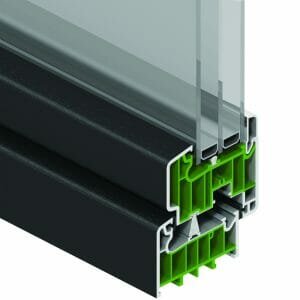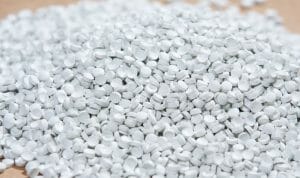
These days, the word “sustainability” seems to crop up everywhere. But is it just another business buzzword, or are we genuinely making a shift in the way we think and act, to protect and preserve the world we live in for future generations?
While “Green Issues” like recycling and sustainability were on the fringe 20 years ago, these days they’re right at the heart of business with sustainability having a huge influence on every aspect of industry, especially at Eurocell.
What’s more, according to our research carried out in 2019, over half of consumers want their houses to be built with sustainable features.
When asked about their preferred sustainability features, consumers identified double/triple glazing as the most appealing (58%), followed by solar panels (35%), energy efficient appliances (34%) and the use of recycled and sustainable building products (22%).
One of the key drivers behind this trend is the implementation of sustainability features by developers, which are regularly being incorporated into housebuilding voluntarily rather than because of legislation.
Explaining this trend, Steve Marshall, Architect Director and Head of Housing at BDP commented: “Some of our local authority clients like to be seen as leading the way and pushing standards when it comes to sustainability. They need to be seen to be doing the right thing and as such will go above and beyond minimum requirements. It might take time for this to impact the standards that others build to, but this may happen as buyers start to ask why the council is offering something that private developers are not.”
Whilst housing developers are pushing this trend currently, a group of architects presented with these statistics believe that consumer and tenant demand is likely to be a driver for sustainable development in the future. Despite this increased awareness it was highlighted by the architects that, for homes to become more sustainable, consumers need more education on what sustainability means in housing.
James Roberts, Project Architect at SimpsonHaugh, said: “It comes down to what is tangible. People understand the concept of double glazing and smart meters, for example. However, if you look at the sustainability credentials of the materials used, or how airtight a home is, these are less tangible yet can have an equally significant impact on how sustainable a home is. As such, willingness to invest in some ‘sustainable design features’ is likely to increase as the public’s understanding of them does. Some they will already be investing in, without appreciating it.”
 Why use PVC-U
Why use PVC-U
PVC-U is a highly sustainable product, robust enough to be recycled and repurposed up to 10 times without its quality or performance deteriorating, giving it a lifespan in the construction industry of 350 years.
At our recycling plants, we process up to 70,000 old PVC-U window frames per week, or around 39,000 tonnes per year. Once recycled, it is used to create a variety of new products, from thermal inserts to our revolutionary Modus window system. By doing this we can reuse almost 100% of our production waste.
Wherever possible, we offer a ‘closed loop’ service, reengineering the PVC-U taken from old frames to make new windows, doors and building products for the same supplier.
The process uses less energy and gives customers a high performance, more efficient product. Working in commercial, refurbishment sectors and social housing, we have the capability to collect nationwide and reprocess old window frames that may otherwise go to landfill, converting them to reusable material which can be used as a raw material in the manufacture of new building products.
Preventing post-consumer windows and doors going to landfill is not only environmentally beneficial but has a direct impact on project delivery and cost effectiveness. Under current government commitments landfill tax is set to continue.
By adopting and implementing sustainable practices companies can manage resources, build their environmental reputation, and ultimately reduce costs.
8 Facts you may not know about PVC-U
- PVC-U is made from 57% salt
- The Circular economy is on trend – but we have been doing for over 10 years – we call it closed loop recycling
- When we asked, 99% of people didn’t know that window frames could be recycled
- 95% of A+ rated windows in the UK are PVC-U
- PVC-U can be recycled up to 10 times
- With a first lifespan of 35 years PVC-U windows and doors can have a total life of up to 350 years
- PVC-U actually gets stronger when recycled
- Our windows are made with 50% post-consumer recycled material.
 The recycling process makes PVC-U stronger
The recycling process makes PVC-U stronger
Products manufactured from recycled PVC-U are actually stronger than those made with virgin plastic because of the chemical transformation of the polymers it contains when it goes through the recycling process.
PVC-U is made up of millions of intertwined, spaghetti-like strands, or ‘polymer-chains’ that give it rigidity and strength. When the plastic is heated to melting point during recycling, these strands loosen but, crucially, they don’t break down as other polymers can in some other forms of plastic. That means, when the melted plastic is reformed into new window frames, the polymer-chains can intertwine again. The first time PVC-U undergoes this process, it gets up to 6% stronger, then marginally stronger the next four-five times it is recycled, meaning that PVC-U can be re-processed and used to make the same products it came from or for high-value, ‘upstream’ recycling.
Eurocell Recycle
At our consolidated operations in Ilkeston and Selby, Eurocell Recycle now offers the largest and most complete closed-loop process in the UK.
Recycling plays a significant role in making industry sustainable. That’s why Eurocell is so heavily committed to recycling every single piece of UPVC waste we create. We aim to bring as many post-consumers window frames, doors, conservatories and building items as possible back into the production process, keeping tonnes of UPVC out of landfill.
Despite 2020 resulting in several challenges – we still managed to recycle an impressive number of PVC-U frames. Like most businesses, Eurocell Recycle closed its doors for a few months in 2020 to keep its staff and customers safe and put in Covid-secure work processes.
This being said, for the last 5 consecutive years, (2020 excluded) Eurocell Recycle has managed to beat its previous year’s total recycling number and we plan to make 2021 the biggest year yet, with a target of a record-breaking 3.5 million frames recycled.
It’s all part of our contribution to the circular economy – a global shift towards reclaiming used raw materials and keeping them in the supply chain via reusing and recycling.
It’s a methodology that’s not just good for the environment but for the global economy too, salvaging billions of pounds’ worth of raw material for re-use, where it had previously been simply thrown away and lost forever.
However, impressive as all these achievements are, sustainability is about much more than recycling. And at Eurocell, we’re working harder than ever to achieve maximum sustainability in every aspect of our business.
To find out more about our sustainability, or to arrange a collection of PVC-U frames visit: www.eurocell.co.uk/eurocell-recycle
